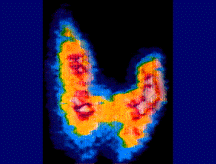

Hormones coordinate the anatomical, physiological and behavioral changes necessary for developmental, seasonal, and diurnal transition in animals. These molecules have profound effects on the development of the brain and on adult brain function. How do hormones orchestrate brain assembly and the expression of specific behaviors? How do behavior, social context, and the environment influence hormone secretion? This course will provide a critical survey of our understanding of the relationship between endocrinology, the brain, and behavior in a variety of animal systems. Select topics include insect metamorphosis; sexual differentiation of the vertebrate brain and behavior; reproductive and aggressive behavior in birds, lizards and rodents; song learning and song production in birds; and the effects of hormones on sexual behavior and cognitive function in primates, including humans. The exploration of a variety of systems will provide students with an appreciation of the ways in which the relationships between hormones and behavior vary across species, as well as the extent to which these relationships are conserved.
Unless preregistered students attend the first class meeting or communicate directly with the instructor prior to the first class, they will be dropped from the class list. NOTE: Students must still submit a completed Drop/Add form to the Registrar's Office.
COURSE FORMAT: Lecture/Discussion
Level: UGRD Credit: 1 Gen Ed Area Dept: NSM BIOL Grading Mode: Graded
Prerequisites: BIOL207 OR NS&B213
Last Updated on MAR-24-2000
Copyright Wesleyan University, Middletown, Connecticut, 06459